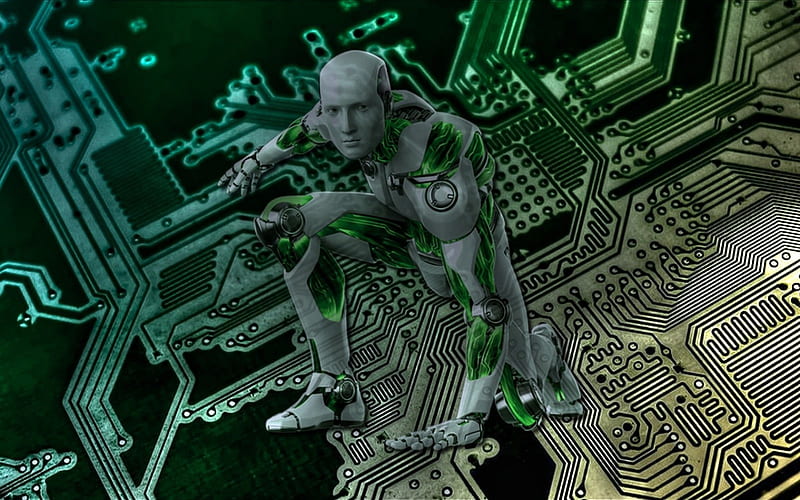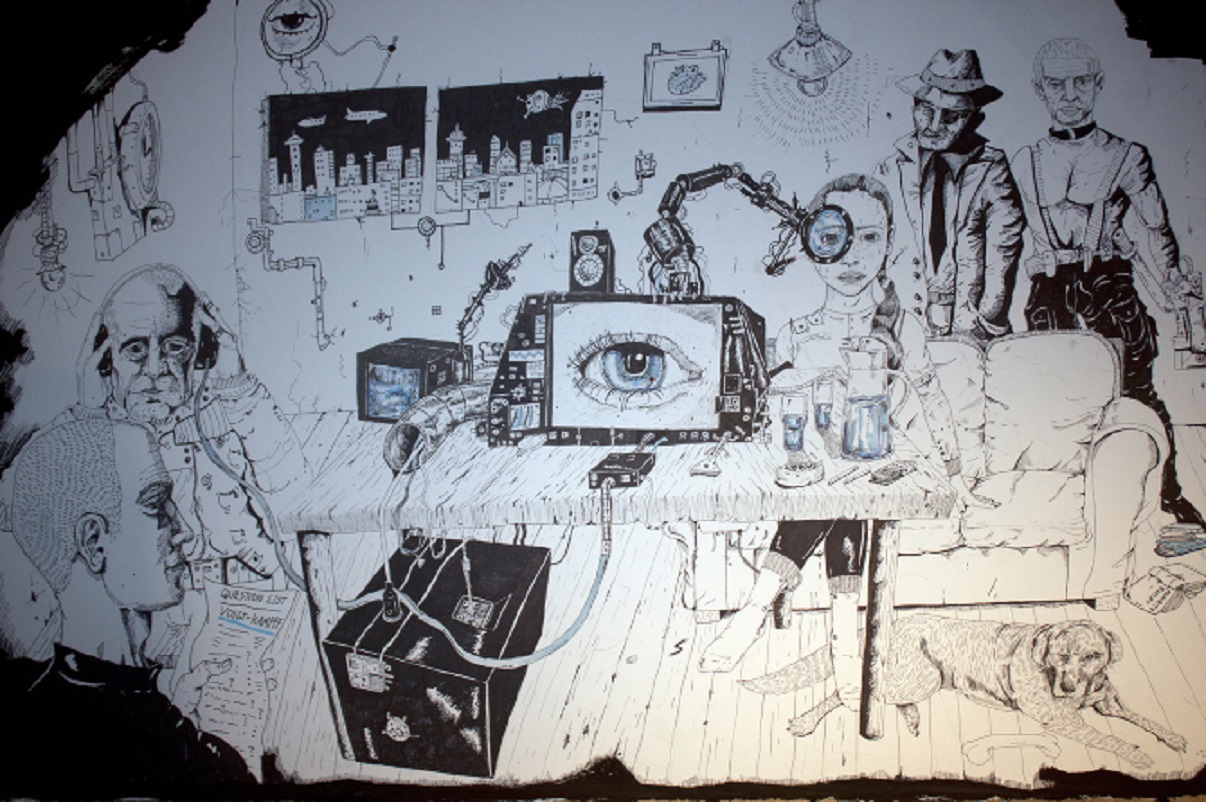In order to understand finite games all we need to do is imagine ‘a Mover who moves but is not in turn moved, ‘an Influencer who is never influenced’. To be the ‘Unmoved Mover’ is the goal of all finite games, to be the influencer who is never influenced is how we win a finite game – to be unexpectedly moved by the events that either we or someone else has set in motion is to lose. To play a finite game is an exercise in power, therefore – to be powerful is to be invulnerable to change, and yet at the same time to be able to change or influence others at will.
It is interesting in this connection to note that God has been defined in exactly this way – as a Finite Game Player! The idea of God as ‘the unmoved mover’ (or ‘prime mover’) goes back at least as far as Aristotle, who – according to the Wikipedia entry – argued that –
…there must be an immortal, unchanging being, ultimately responsible for all wholeness and orderliness in the sensible world.
When we think about God this is how we think of Him – we see the Deity as the Supreme Doer, who creates the Universe in exactly the way that He wants to create it, without Himself being changed in the process of Creation. This shows that there is a very important difference between the Creator and His Creation therefore, which is – we might argue – remarkably disempowering for all of us human beings who have been created in this way. We can contrast this rational approach to religion with the Hindu story of how Brahma creates the world, which has nothing to do with power (or control) and everything to do with risk. The Creation of the Cosmos – in which Brahma unconditionally loses himself – is the ultimate risk – there is no ‘plan’, no ‘enforcing of the Divine Will’ here at all.
Instead of saying that ‘power is all about influencing the world whilst not being influenced ourselves’ we could therefore say that the exercise of power is all about avoiding risk. We usually look upon power as being the same thing as strength – it is regarded as a positive attribute, something to be admired, whilst in reality it has its root in weakness. ‘Power’ and ‘strength’ are antithetical, says James Carse. If our relationship with risk is such that we are averse to it and wish to avoid any exposure to it, then this is just another way of saying that we’re afraid of it and being afraid of risk means that we are obliged to take whatever action we can in order to avoid it. This isn’t ‘action that arises from freedom’ but ‘action that comes out of necessity’ (which is to say, ‘the lack of freedom’. We have no choice in the matter – we are not ‘acting’ but ‘being acted upon’. We don’t cause activity, we are the ‘result’ of it…
To play a finite game is therefore to say a very big “NO” to risk and saying a very big “NO” to risk is not a manifestation of strength! From our ordinary, day-to-day, point of view we would undoubtedly say that steering clear of risk is a very sensible thing to do – common sense dictates that we should have such an attitude, after all. What’s the point in taking a risk if you don’t have to, after all? Why take a gamble when we could just play it safe and hang on to what we already have? As soon as we articulate this question however we start to see the flaw that’s in it; as everyone knows, the attitude of ‘playing it safe’ and never taking a risk means that nothing ever changes and so were it be the case that we succeed (out of our fear) in making sure that nothing ever changes then we would have ‘succeeded’ at very great cost to ourselves. To avoid risk is to avoid life itself and there is – we might say – nothing ‘sensible’ about avoiding life!
Being skilled and/or determined at avoiding ‘the risk of being changed or influenced in an unforeseen way’ is to be skilled and determined at avoiding life, in other words, since there can hardly be any such thing as ‘life’ if we’re always making sure that we’re 100% insulated (or 100% defended) against it. Instead of being a process in which we find ourselves changing in a way that we couldn’t ever have foreseen (which is what we generally call ‘growth’) life gets inverted so that it becomes a situation in which our ideas or beliefs about the world become so entrenched or so solidified as to become permanent fixtures that we can never go (or see) beyond. The degree to which we’re able to succeed in our finance play is the degree to which we are able to enforce our particular viewpoint so that no other viewpoint ever gets a look in. To be a successful finite game player is to be a person who is always proved right, a person who is always justified in whatever they say or do. We might naively think that is a good thing, but any degree of awareness at all shows that to ‘succeed’ in such a way so we’re never wrong (and therefore never learn anything new) is the greatest of all disasters.
We can only fight all change and block out anything new and yet still feel good about it (i.e., feel that we are acting in a heroic or noble fashion) when we say that the values which we are defending so staunchly are genuinely worthwhile in themselves, that they are genuinely important or valuable. Believing this straightaway turns us into heroes (at least in our own eyes); a finite game player is forever striving to return the situation to the way it used to be (or to the way we want it to be), thereby resisting all other influences apart from our own will, and ‘our own will’ is simply fear in disguise. We have fixated upon one particular position and we’re saying – in effect – that this is the right place to be (and that, therefore, all other possessions are wrong, erroneous, incorrect). Were we to allow ourselves to see that what we’re doing here is simply ‘resisting change out of blind fear’ (which is to say, that we’re holding onto a fixed point of reference simply because we’re terrified to let go) then this would be a very hard thing for us to countenance. We wouldn’t be able to live with ourselves then; we wouldn’t feel in the least bit validated in what we’re doing and so what we do instead is to tell ourselves that we’re ‘doing God’s will’ – or something equally validating. Rather than admitting that we’re ‘afraid of change’ we say to ourselves that we’re ‘fighting the good fight’, we say that we’re ‘fighting against Satan and all his works’ (or some such cliched formula). We invert the natural order of things, therefore.
The reason this discussion of finite games is significant is of course because playing finite games is pretty much all we ever do. Society itself is nothing more than ‘one big overarching finite game’. We’re orientated towards obtaining the specified outcome as if ‘attaining designated outcomes’ were what life is all about; life itself ‘doing what it wants’, ‘going where it’s going’, is of no value or interest whatsoever to us – what counts is nailing things down, what counts is getting life to do what WE want it to do. Our standing in society depends upon how good we are at getting reality to conform to our ideas for it; our status in society comes down to ‘how well we can play the finite game’, in other words. Everything is about the exercise of power therefore – whether we like to admit it or not – and because of our focus on this we are we completely fail to see that our high regard for power masks our weakness. External strength – which is to say – the ability to achieve our goals, the ability to get people (or things) to be the way we want them to be (or the way we think they ought to be) is being valued at the expense of inner strength, which is – we might say – the strength to let people or things be what they actually are. ‘Inner strength’ has nothing to do with ‘being right, or ‘being validated’ – it is – on the contrary – the strength to see that we’re wrong, the strength to see that the way we think things are (or the way we think things should be) isn’t actually true at all.
We could also say that finite games are how we create an identity for ourselves. For players of the Infinite Game there is no such thing as ‘identity’ – if I am vulnerable to being changed by the world in ways that I (or anyone else) am unable to foresee, then clearly means that I am not hung up on this thing called ‘identity’! There is no identity when we’re open to change and this lack of identity is just another way of talking about freedom – we run constrained, unlimited, we’re free to change in ways that are incomprehensible to us, which means that we are free to grow. ‘Having an identity’ and ‘being free to grow’ (or ‘free to learn’) are two incompatible things – it’s either the one thing or the other. We’re attracted to the notion of identity because this seems to give us something to hold onto, a fixed central point of reference that imparts stability and order to our experience of life. We imagine that finding our identity will give meaning to our lives. The irony is that it does the very opposite – by living on the basis of fear that we don’t own up to we make our lives meaningless, by clinging unreflectively to our ‘precious sense of identity’ we prevent ourselves from ever seeing who we really are.
Image credit – discovery.org






